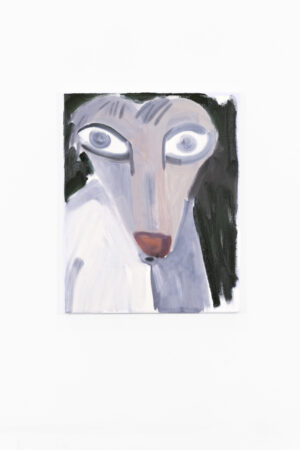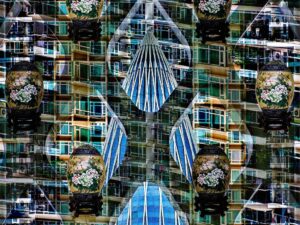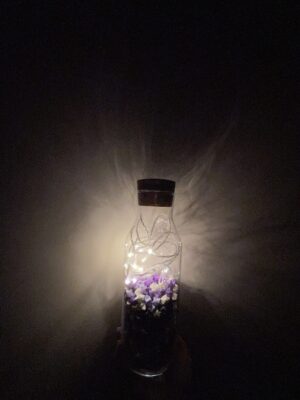Intergenerational Radio
Zoe Grace-Anne Laycock
Zoe Grace-Anne Laycock
Zoë is a Bachelor of Fine Art & minor in Social Practice and Community Engagement (SPACE), she is Anishinaabe Métis, born and raised in Métis Region 3. Zoë’s work is influenced by her experience and upbringing with strong cultural connection, she values community building, cultural accessibility, preservation and activation. Though multidisciplinary, her work scales from small, intimate traditionally beaded works, to larger scale installations — all very much informed by indigenous traditional language, materials, teachings, world view and reciprocity while navigating current mainstream society with these values. She works with language, placed based natural and supernatural worlds, reflection of ritual, as well as deeply introspected works with opinions on home, diaspora and identity.
Zoe has been accepted to continue in the MFA program at Emily Carr.

Block Print, Sinew, Muslin, Human Hair, Beeswax, Bingo Dabber, Sash, Little Koko’s hand knit socks, Smudge Stone, Sweet Grass, Cigarettes, Tetley Teabags
Our unseen ways of communication, (un)intended secrets buried and thoughts transmitted through the skies from our ancestors long passed, to our children unborn, I sit in the liminal spaces between all of my relations ready to receive through the ever-changing currents of energy, knowledge, and spirit.


The inclusion of beaded text on prints, and oil paintings particularly in Anishinaabemowin, or Ojibway literally binds culture in a visual and physical way to a traditionally eurocentric and colonial medium. I’m using a roman alphabet, and canvas, and oil paint, but I’m representing my experiences and understanding of my Anishinaabe culture, I wouldn’t say I’m revitalizing because I know that a lot of our communities and cultural practices are thriving, but I am making a statement of that cultural triumph and that it exists in our current colonial world. Also, it’s important to be humble because these works are very personal, and very connected to my own personal, intimate experiences as an indigenous woman navigating the mainstream colonial society. The link language plays is critical to cultural preservation, and in a way including it on paintings and works like this brings it into a broader view, it’s not only a cultural entity that exists around our grandparents kitchen tables, or at our aunties houses, through this work I want our language to intersect into that colonial mainstream that it often only used to parallel. It’s a deep personal connection having the privilege growing up with my Ojibway and Metis culture so euphonious with my everyday life, even if that everyday was in an urban, colonial landscape.












Kitchi Miigwetch




